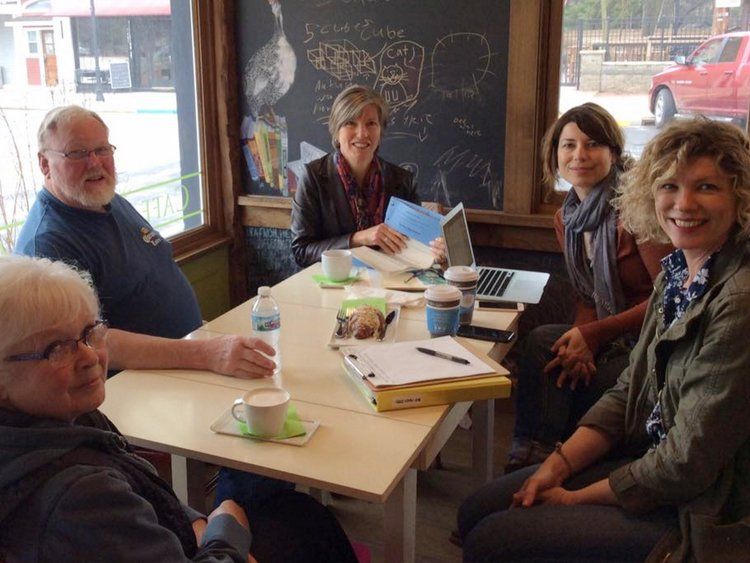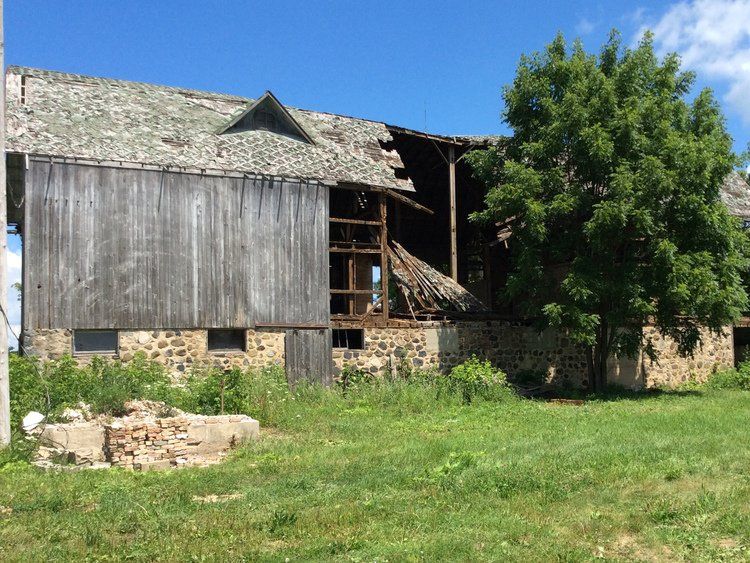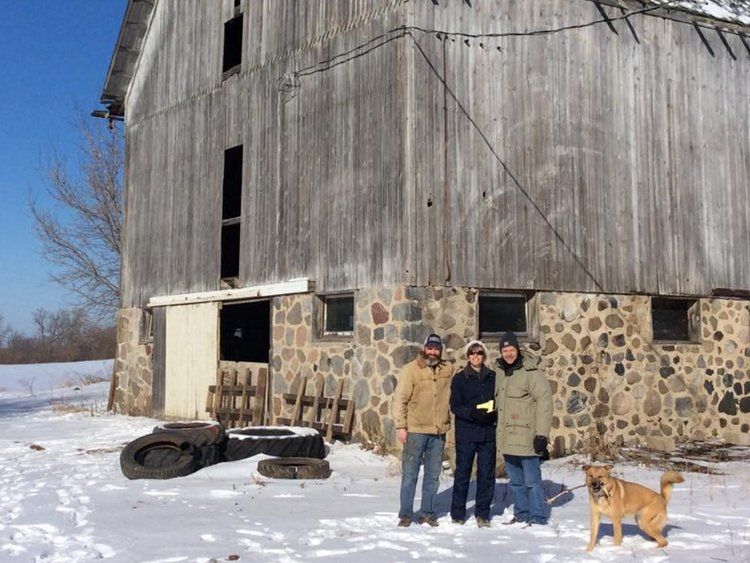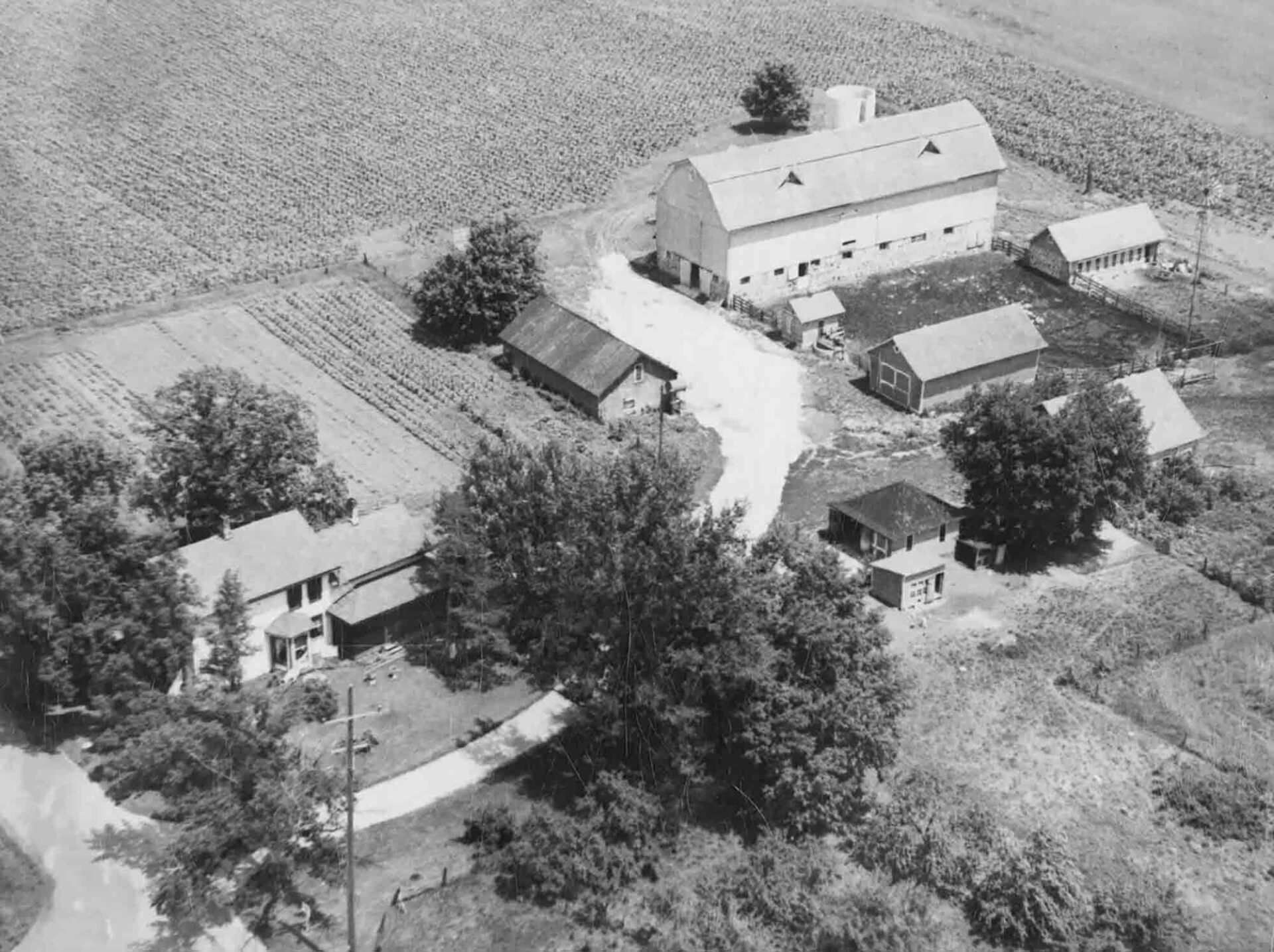Schwall Barn
Sometimes almost losing something makes you realize it’s worth working hard to get it back. That’s what Kim (Schwall) Seidl and her husband are doing—working hard to see faith, family, and community restored on her grandparent’s farm.
The Schwall Family Farm was a classic midwestern farm that had been in the family for generations. Bill and Carrie Schwall bought the Stone School Road farm in 1950 from John Spellman, who was still in possession of the original land deed that recorded an 1839 sale of the farmland by the U.S. Land Office to a man named John Hutchison. Along with midwestern history, the farm had everything a farm should have: a barn and toolshed, a chicken coop and corn crib, a milk house and garden plot. The chickens were always clucking and crowing and getting underfoot while there were hogs to slaughter and pickles to make. Through the years the farm kept a couple of memorable horses, namely Arnie, who would only let Bill ride him for a few brief moments and then “head for the closest tree with the lowest branch”, and Dolly, a Shetland pony the kids were always itching to feed. They would stand at the fence and pull the long grass growing by the posts and wait for Dolly to trot over and nibble from their hands.
The reunions are what the family remembers most, and at the reunions, the food. Of course there was always food. Grandma Carrie’s coop always supplied enough fresh chicken for Bill to gladly barbecue, and she kept a plentiful garden with strawberry beds, asparagus, rhubarb, corn. There was always an abundance of good things growing. During a family gathering, if more arrived than planned, Grandma Carrie and her big garden had it covered. She would simply say to Dave, “Go out the garden, Dave, get an extra dozen ears.”
Industrious and prudent, Carrie was always “putting something up” like tomatoes, apples, pickles. She would grow and can and pickle and bake, living out the old-fashioned credo “Eat What You Grow and Grow What You Eat”. Carrie was one of those economical Wisconsin farm woman from an earlier era who could squeeze a nickel and find a dime.
Hard work and industry was what their farm life was all about. “It was the farm work ethic. We seem to have lost that these days, but maybe it’s coming back. People are realizing again that there’s such a joy to planting, watering, and harvest: a beginning, middle and an end.” — Kim (Schwall) Seidl.
The Schwall family enjoyed years of gatherings and reunions at the farm, but time passes, generations grow, and stories continue. Bill built Carrie a new home on the edge of the north field, then died shortly thereafter. Although Carrie continued as the matriarch of the family with her table always full of homemade food, the large family gatherings slowly fazed out. Carrie’s oldest son, Dick, farmed the land until the demands of two careers made it impossible to continue. In 2014, with the eventual sale of the farm, a small portion of the farmstead was purchased by a granddaughter (Kim) and her husband (Todd Seidl). The “Home Farm Project” vision was born to create a place once again for family gatherings and recapture the industry and productivity of bygone days. “We’re doing what we feel we are called to do, putting the proverbial ‘all our eggs in one basket’ and it’s all on Stone School Road. We want to bring back the family reunions and special occasions, bring back the sense of a tight community we had in the days of Bill and Carrie with family and friends, and it definitely is a collaborative family effort.”
Kim is at the helm, passionate about planning it and fitting all the pieces together. When they all realized the old barn on the property couldn’t be restored, Kim called Heritage to take down the barn and build them a platform table using some of the reclaimed boards, “Keeping part of that barn on the farm, in the family.” What this Wisconsin family is doing is what Heritage is all about: community, family, tradition, hard work, reclaiming the past to enjoy the present, and using what you have right in front of you. We agree with them that “It isn’t about the beams and boards, it’s about the people.”




